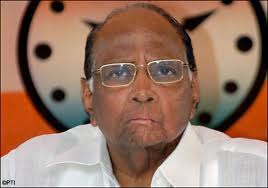
New Delhi, July 23: The euphoria over Pranab Mukherjee's win may prove short-lived as ally NCP is flexing muscles over being ignored in decision-making in the ruling coalition. A shift of the popular eye from celebrations in the party to a sulking NCP chief Sharad Pawar in a day's time may not be a script of the ruling party's choice, but will keep the latter on the defensive.
The Congress brass is keen to resolve the rift with Pawar as it wants to press on with some brisk decision-making to arrest a declining economy and speed up governance projects. The party is aware the next 3-4 months will be key in recouping lost ground. Pawar is aware of his ally's compulsions and, according to NCP sources, has taken a tough line on his demand that he wants to be closely consulted in decision-making at the Centre and in the state.
Pawar may not walk out of UPA but his revolt punctured the "feel-good" Congress rediscovered after taming Trinamool chief Mamata Banerjee. The PM is keen to get Pawar back to active Cabinet duties as he sees the agriculture minister as a valuable ally in backing reforms. However, says the NCP, a settled Congress will only marginalize allies and is even thinking of coordinating its moves with other partners. NCP's tough stand serves as a signal to parties that Congress remains vulnerable and there might be virtues in keeping it off balance.






Comments
Add new comment